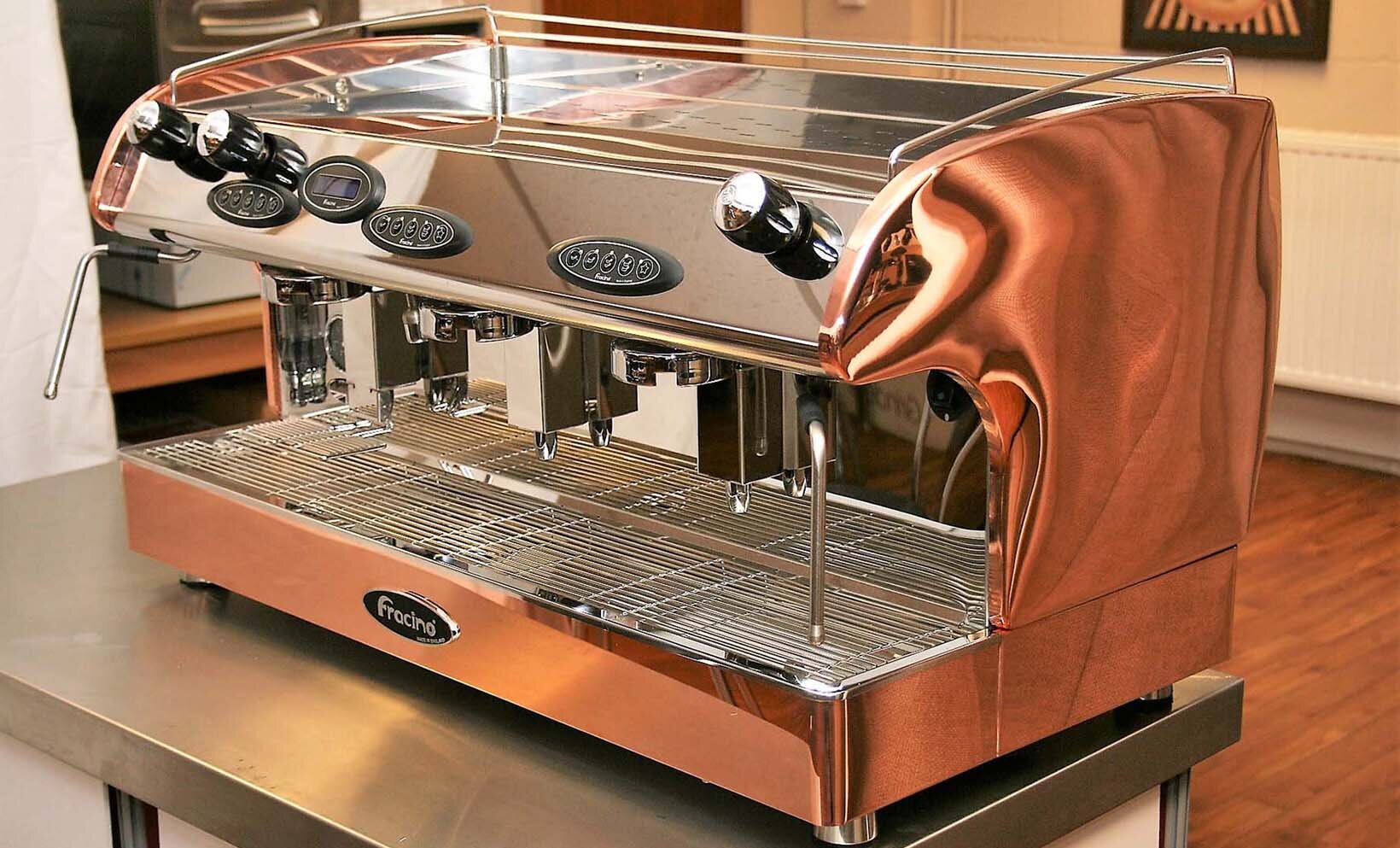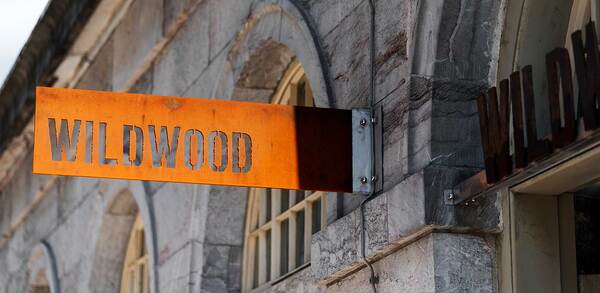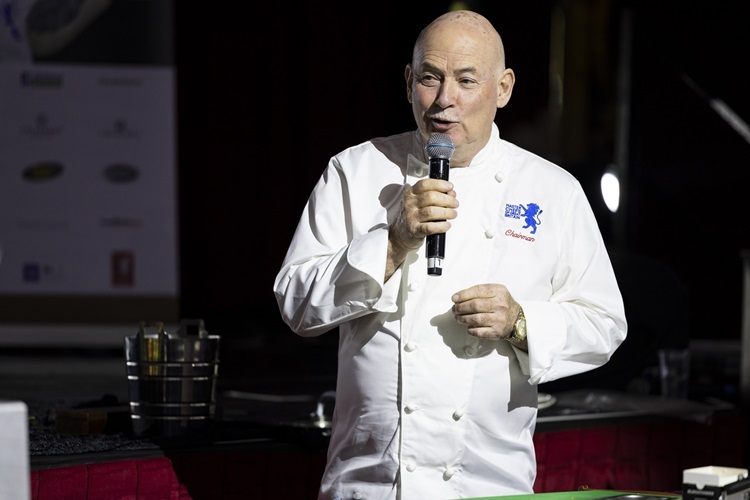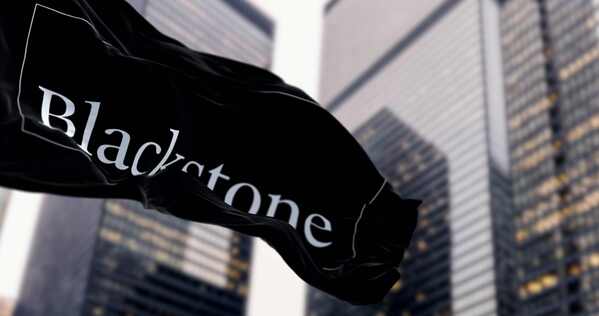Winter warmers: hot drinks to heat up your Christmas menu
As we approach the most popular time of year for hot drinks, Ian Boughton takes a look at the latest trends and discovers how brands are innovating to survive, despite coronavirus restrictions
In normal times, autumn is the time of year that the hot beverage sector holds its exhibitions to display what’s new in drinks and technology. But this year’s crisis didn’t stop the suppliers coming up with new ideas.
The large increase in home-working has resulted in a sharp rise in smaller espresso machines and also in mobile gas-powered machines, reports Fracino’s head of marketing, Peter Atmore.
“We’ve also seen a large increase in mobile and pop-up coffee bars, and as our expertise in gas-powered equipment leads the world, we have been developing a wider range to allow operators to work away from fixed locations, which are more prone to lockdown restrictions.”
“Technology has moved on, and the machine’s texturing of milk can now certainly match that of any good barista”
Fracino has also renewed its range of custom machine designs – it first did this many years ago, when such curiosities as leopard-skin espresso machines were popular.
“Most of those early designs were a vinyl wrap, which we still offer – our Union Jack finish is produced that way. We now also have a range of solid and polished finish colours, which allow the client to match or complement an interior design style, and it has proved exceptionally popular with restaurant and hotel designers.”
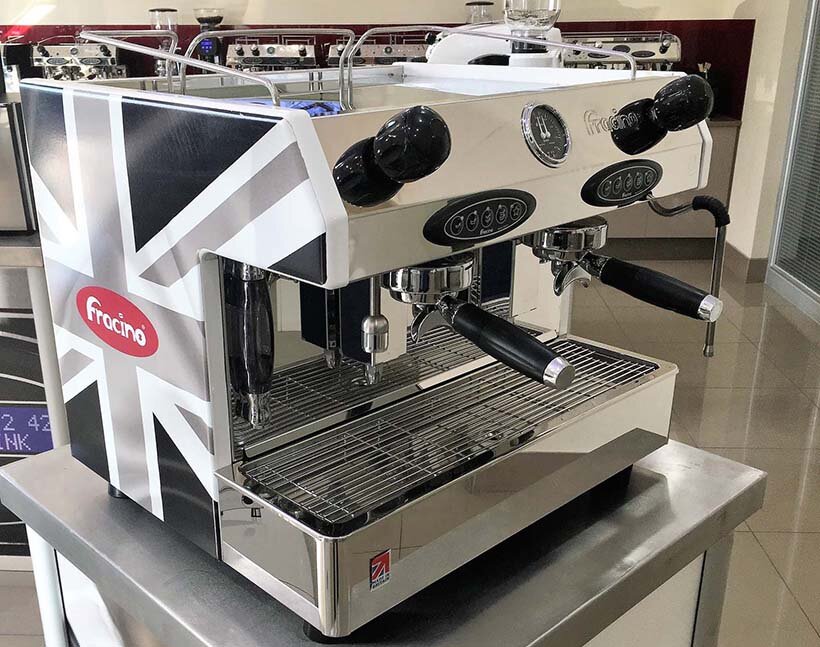
The Brew-it Group reports that its Puqpress tamper has been sufficiently well received for the launch of a space-saving mini model for light café use. Tamping is the pressing of coffee in the basket before an espresso is brewed; it is a manual skill, but takes time and has the hazard of inconsistency. The Puqpress allows a barista to tamp quicker and with more consistency than doing it by hand, “better than any staff member could possibly achieve”.
Brew-it also distributes the Fetco brand of bulk brewers, for whom currently useful features are the anti-microbial coating on tap handles, and a touchless, hands-free handle, activated by pressing against it with the cup.
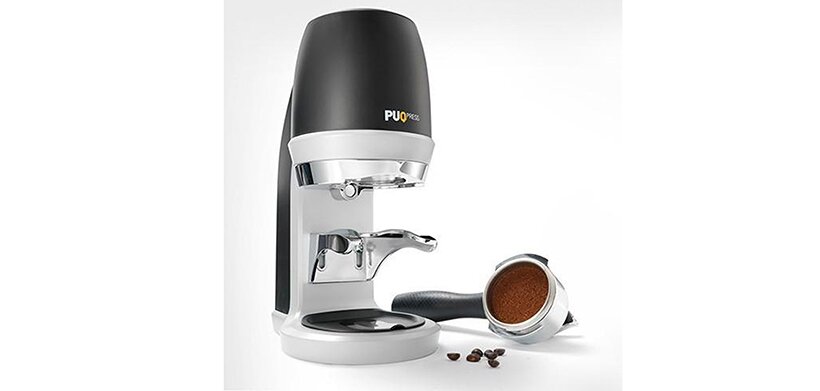
Rise of the machines
An unexpected name moving into espresso machines for hotel rooms is Illy, the great Italian coffee brand.
“We are developing an energy-efficient easy-to-use option for hotel rooms,” says Stuart Holmes, managing director of Illy UK.
Illy’s ESE machine will use coffee ‘pods’, which are not to be confused with ‘capsules’. An ‘easy-serving espresso’ pod is a long-established product in the coffee trade, being like a circular teabag, filled with a measured and compressed dose of coffee; they are used in many standard espresso machines.
Similarly, after a successful foray into capsules, coffee brand Lavazza has launched Coffee To Go, a self-serve machine for the kind of site where the customer pours their own and pays at a reception desk or cashier.
Lavazza claims that the machine will “provide authentic Italian recipes made from 100% Arabica coffee”, in which it even includes the flat white, a drink which is usually the test of a skilled barista’s milk technique. Can that really now be reproduced by a fully automatic machine?
“Technology has moved on, and the machine’s texturing of milk can now certainly match that of any good barista,” says James Nicholson, managing director of Franke Coffee Systems, which makes the machine.
“For each individual drink we can now control volume, temperature and liquid and solid foam, thereby controlling the milk texture.”
Another interesting claim for a new super-auto espresso machine is from Electrolux, saying that its Tango “can quickly make a huge range of beverages, such as lattes, cappuccinos and flat whites, with minimal user interaction – it is the only super-auto machine capable of dispensing four drinks simultaneously.”
For an automatic machine to handle four of those milky drinks at once would indeed be remarkable. When questioned, Electrolux qualified the claim by saying “the Tango is able to make two milk-based drinks and two espressos simultaneously, such as two lattes and two Americanos.” So in effect, it can make two black and two white at once.
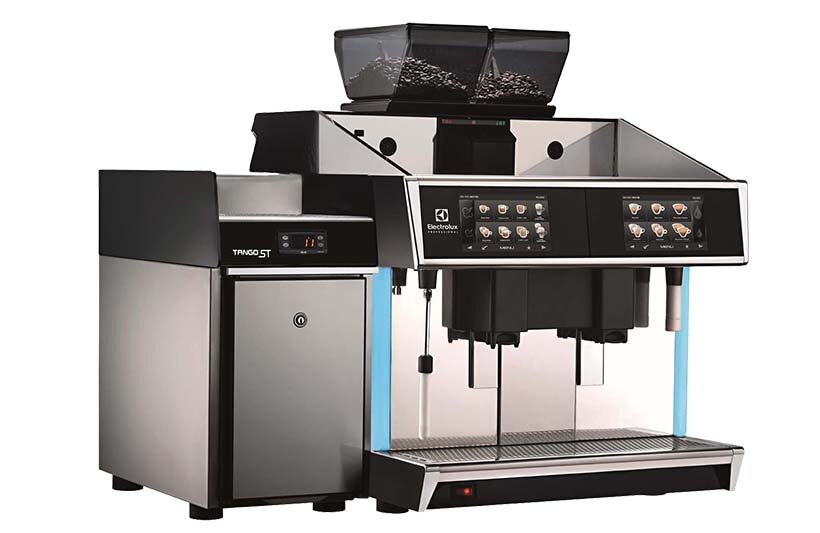
Bags of fun
Away from espresso, several brands agree that the coffee bag has established itself in the hospitality trade. This is not a new idea, but only recently came to prominence.
“This year has seen hoteliers reviewing their whole operation,” remarks Natalie King, out-of-home manager at Taylors of Harrogate. “Guests are spending more time in their room, and so a high-quality in-room refreshment tray has become more important. Coffee bags bridge the quality gap from instant coffee and are already a favourite with consumers. We expect to see them becoming even more popular with hoteliers.”
“Guests are spending more time in their room, and so a high-quality in-room refreshment tray has become more important”
Coffee bags are a major opportunity for easy-serve good coffee, agrees Chris Tough, marketing manager at Lincoln & York. “We all anticipated the coffee sector taking a hard hit this year; however, consumers’ appetite for great coffee remains undimmed. It’s not the desire for coffee that has changed: rather, it’s how it is provided. For hotels and B&Bs, coffee bags are a great way to upsell coffee, offering the luxury experience of an upgrade in quality and taste that maintains convenience.”
An unexpected arrival this season is the 100% recyclable packaging from Bird & Wild, a brand which supports the RSPB and migratory bird charities.
“A couple of years ago, the coffee industry was all talking about compostable packaging, but it’s a nightmare to make and dispose of, as it needs to be industrially composted. All coffee companies struggled with this, so interest rapidly moved to recyclable packaging instead.
“By December, our kilo and half-kilo bags will be fully domestically recyclable.”
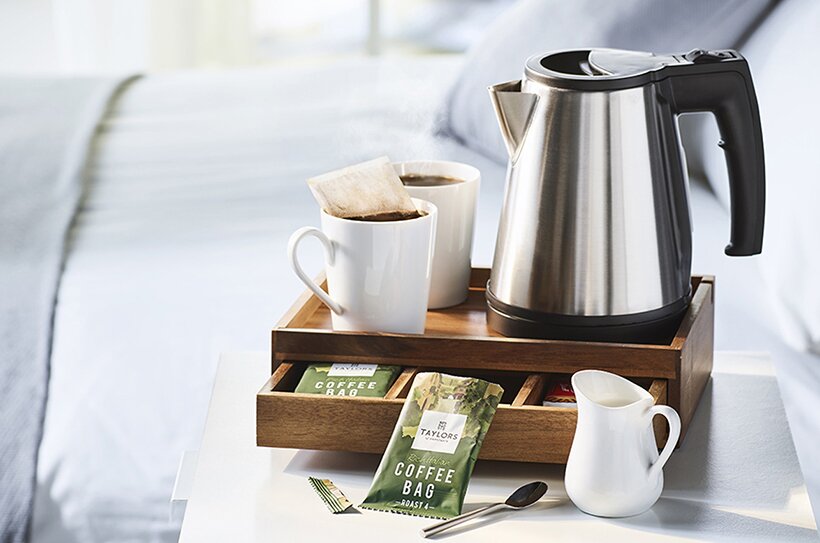
Flavour focus
One way that taste has changed is an increasing demand for high-quality decaffeinated coffee, says Guy Wilmot at Decadent Decaf.“We’re doing well with our new Decadent Decaf Dark Roast, our strongest-ever decaf – this is for those who like their coffee big, brash, bold and dark! As our answer to classic Italian artisan coffee, we roast this blend to the level of mahogany, and the result is a satisfyingly rich and smokey decaf.”
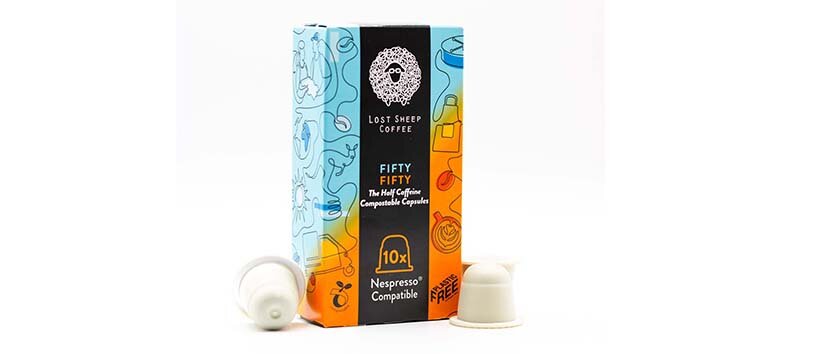
Another new variant in high-quality decaf comes from Lost Sheep, whose Fifty-Fifty is described as “the only hand-roasted, speciality-grade, half-caffeinated, compostable, Nespresso-compatible capsule on the market”. Brand founder Stuart Wilson says that using half caffeinated coffee and half decaf is ideal for those who “love the full taste experience of a fully caffeinated coffee but don’t want the full kick”.
Business in flavoured syrups for coffee remains high, so much so that Beyond the Bean has opened up its own manufacturing site. It now has two home-made British brands: Sweetbird, for the coffee trade, and Bristol Syrup, mainly for the cocktail trade.
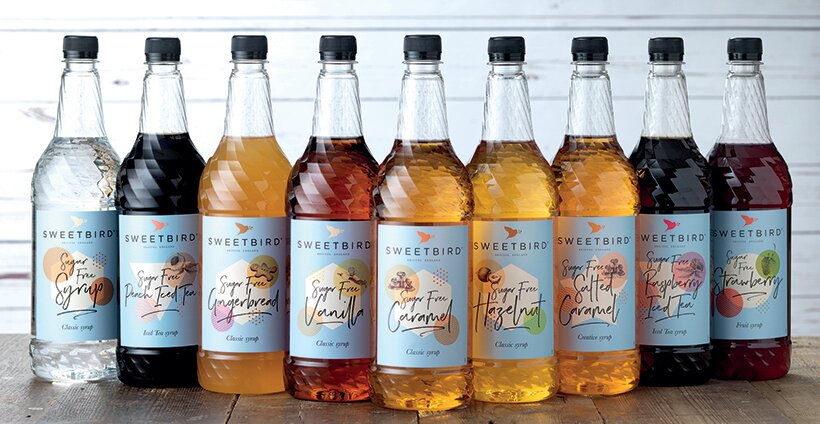
“Flavours are more important than ever,” says managing director Gary McGann. “As tastes evolve, and supermarkets push indulgent flavours, they get replicated in coffee-bar drinks – for example, salted caramel was not in our list five years ago, but is a top-five seller today.”
Curiously, says McGann, while syrups have long been regarded as largely ‘sugar and water’, the biggest new move is to sugar- free flavourings.
“The sugar is the carrier for the flavour. We wanted to stand out as the best sugar-free in the market, and we have achieved that by using a combination of sugar-free carriers. Our sales of sugar-free flavours are growing quicker than our core syrups, and we even now have a sugar-free gingerbread, which should gain a lot of traction this winter!”
Sweet like chocolate
Hot chocolate remains a major player. The concept of ‘ruby’ hot chocolate became a movement this year when even the coffee-house chains caught up with it – Costa launched its ‘baby pink’ at £3.35, a decent selling price for a coffee-shop hot chocolate.
The ruby colouring is a natural chocolate phenomenon that the Barry Callebaut brand called ‘the fourth chocolate’, alongside dark, milk and white. Giant names such as Kit-Kat, Magnum and Häagen-Dazs have now featured it.
In a research report, Callebaut has suggested that a chocolate drink has become an important complement to a dessert, and that consumers would be motivated by a mini-dessert and chocolate drink option; even an appreciable number of those who do not eat dessert would be willing to finish with a high-quality chocolate drink. However, added the brand, eight customers out of 10 say they now expect a chocolate drink to be “expertly crafted with real-high quality chocolate”. Callebaut’s chocolate colour launch has been its Gold: this features caramelised sugar and caramelised milk, and comes out with a “pale amber colour with a golden hue”.
The Dezaan brand has done its own research among chefs, and says that 70% of chefs changed their chocolate supplier in the last year, entirely through dissatisfaction with taste. The brand’s new range involves such titles as True Dark, True Gold, Carbon Black and Crimson Red; however, says Dezaan, these are not rainbow novelties. There is science that affects the colour of chocolate, which is a useful guide for chefs towards the flavours they want.
Don't have a cow
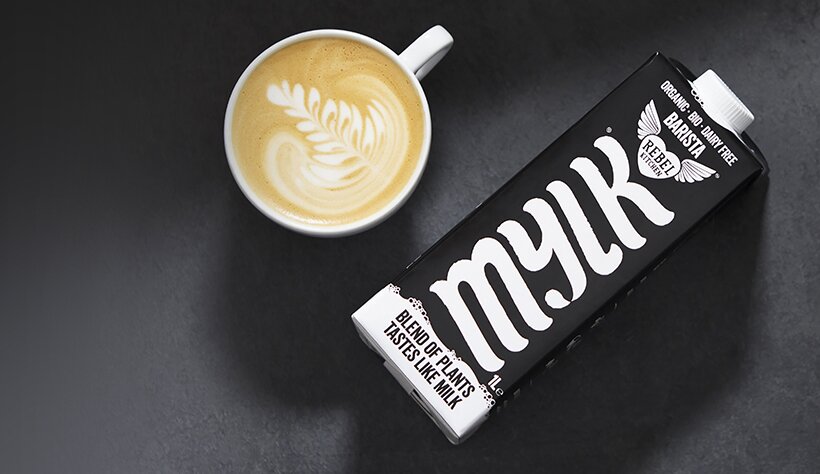
The so-called ‘dairy alternative’ milks are now a mainstream part of the coffee trade, says Rebel Kitchen – but while a quarter of consumers drink one regularly, 43% of consumers are yet to try one, in the belief that ‘they’re not like milk’. The brand says that while some alternative milks can dominate coffee with their own flavour, the new Rebel Kitchen Barista Mylk ‘works and looks just like dairy’, has a neutral taste, yet with a texture and composition that is convenient for baristas to work with, even in the production of latte art.
Suppliers
Barry Callebaut www.barry-callebaut.com/en 01295 224700
Beyond the Bean www.beyondthebean.com 0117 953 3522
Decadent Decaf www.decadentdecaf.com 07974 729482
Dezaan www.dezaan.com
Electrolux www.electroluxprofessional.com/gb 08444 631 260
Fracino www.fracino.com 0121 328 5757
Franke Coffee Systems UK www.frankecoffeesystems.co.uk 01923 635700
Illy www.illy.com 01604 821234
Lavazza www.lavazza.co.uk 01895 209750
Lincoln & York www.lincolnandyork.com 01652 680101
Puqpress and Fetco brew-it-group.co.uk 01246 454400
Rebel Kitchen www.nurturebrands.com 07789 713 103
Taylors of Harrogate www.taylorsoutofhome.co.uk 01423 814 006



